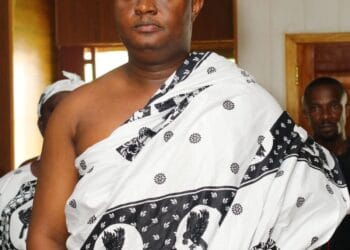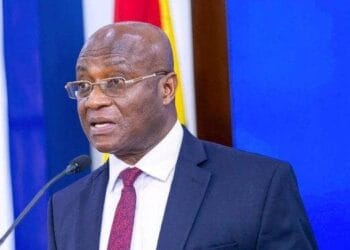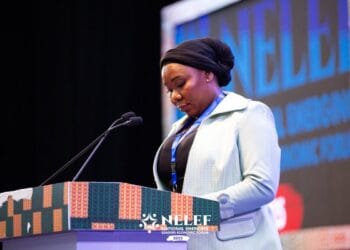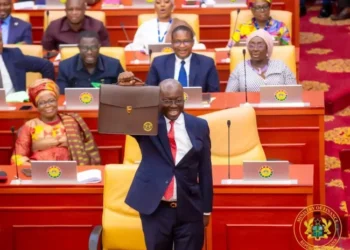A new poll by Global InfoAnalytics has revealed a tightening race in the New Patriotic Party (NPP) flagbearer contest, with Former Vice President Dr Mahamudu Bawumia maintaining his lead but showing signs of declining support, while Assin Central MP Kennedy Agyapong gains significant momentum.
The October survey, which sampled 2,643 delegates across 270 of the 276 constituencies, places Dr Bawumia at 44% support, followed by Kennedy Agyapong at 34%. Fifteen per cent of respondents declined to disclose their preference.
Follow The Ghanaian Standard channel on WhatsApp for the latest news stories from Ghana.
Compared to September figures, Dr Bawumia’s support has dropped by three percentage points, while Agyapong’s has risen by two points.
The analyst presenting the data described the contest as a “cliffhanger” and a “tough, tough election,” noting that Dr Bawumia’s current standing falls short of earlier projections of 50 – 60%.
The poll highlights key regional battlegrounds, particularly in the Ashanti and Eastern regions, where the race is exceptionally close.
In Ashanti, Bawumia leads with 39% against Agyapong’s 35%, while in the Eastern Region, both candidates are nearly tied at 28% and 27% respectively.
Despite strong leads in the northern regions – 69% in Northern, 52% in North East, and 50% in Savannah – Bawumia faces narrowing margins in delegate-rich areas.
Across other regions, Bawumia records 50% support in Central, 55% in Bono East, and 44% in Bono, while Agyapong shows moderate performances in Ahafo (28%) and Volta (25%).
The poll also shows smaller but noticeable gains for Brian Acheampong, who now commands between 2% and 11% support in some regions.
Mussa Dankwa, the lead analyst at Global InfoAnalytics, characterised the findings as evidence of “shifting momentum” in the NPP race.
“Bawumia is still leading but losing ground,” he observed, while describing Agyapong as “trailing but gaining momentum,” edging toward the 40% mark.
Mr Mussa Dankwa attributed the shifts partly to recent public endorsements of Dr Bawumia by Members of Parliament, suggesting they may have been reacting to internal polling that reflected similar trends.
He also cited Kennedy Agyapong’s “radio interviews and public demonstrations” as key factors contributing to his upward movement among delegates.
The analyst, however, cautioned that “data is not entirely absolute, especially when it comes to polls,” urging campaign teams to probe the causes behind changing delegate sentiments.
“These are curious things that the team must know,” he said, posing the central question of why Dr Bawumia’s support is slipping as his opponents gain ground.
The Global InfoAnalytics survey reported a 99% confidence level and a margin of error of 2.4%.
Delegates aged 35 – 54 formed the majority of respondents, representing 74% of the total sample, while those aged 25 – 34 accounted for 15%.
The poll indicates that the race remains highly competitive, with undecided and undisclosed voters still holding the potential to determine the outcome.



























